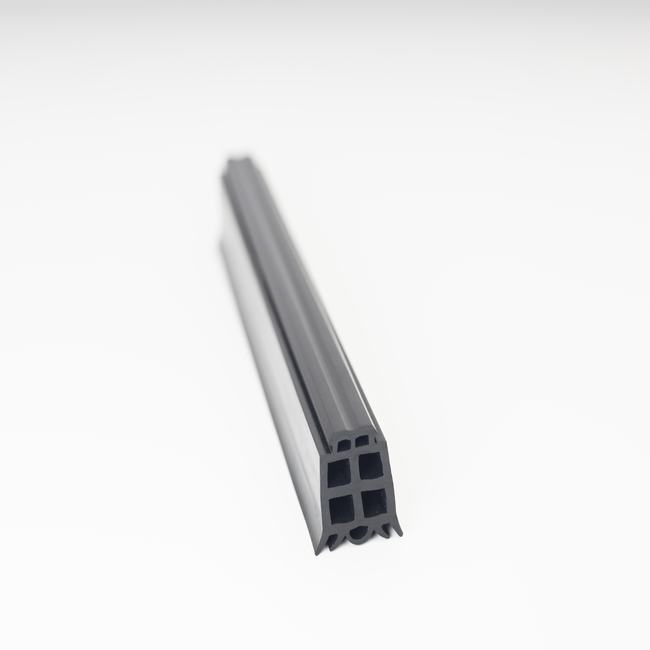Industrial seals are essential components used in various industrial applications to prevent the leakage of fluids, protect equipment, and maintain the integrity and efficiency of machinery and systems. These seals come in a wide range of materials, designs, and types to suit diverse industrial needs, from hydraulic systems and automotive applications to process industries and manufacturing. Here’s a detailed description of industrial seals:
- Materials:
- Industrial seals are manufactured from various materials, including:
- Rubber: Nitrile, silicone, EPDM, and other rubber compounds are commonly used for their resilience, chemical resistance, and sealing capabilities.
- Plastics: Polyurethane, PTFE, and other plastic materials are employed for their durability and resistance to abrasion, chemicals, and extreme temperatures.
- Metals: Stainless steel, aluminum, and other metals are used for their strength, corrosion resistance, and sealing in high-pressure applications.
- Composites: Some seals are made from composite materials to combine the advantages of different materials.
- Types of Industrial Seals:
- There are various types of industrial seals designed for specific functions and environments:
- O-Rings: Circular seals used for static or dynamic applications to create a secure seal in both hydraulic and pneumatic systems.
- Gaskets: Flat seals placed between two surfaces to prevent fluid or gas leakage, commonly used in pipe flanges and pressure vessels.
- Rotary Seals: Designed to seal the rotating shafts of machinery, such as pumps, motors, and gearboxes.
- Hydraulic Seals: Used in hydraulic systems to prevent fluid leakage and maintain pressure.
- Pneumatic Seals: Designed for use in pneumatic systems to prevent air or gas leakage.
- Mechanical Seals: Used in rotating machinery to prevent leakage of fluids, especially in pumps and compressors.
- Lip Seals: Commonly used in automotive and machinery applications to protect against contaminants and retain lubricants.
- Sealing Washers: Used with bolts to create a seal and distribute pressure in applications like plumbing and construction.
- V-Rings: Designed for rotary shaft seals and prevent contaminants from entering the system.
- Cassette Seals: Used to protect bearings and gears from contaminants, extending the lifespan of machinery.
- Applications:
- Industrial seals are employed in a wide range of applications, including:
- Automotive: Sealing engines, transmissions, and other components to prevent leaks and maintain performance.
- Hydraulic Systems: Ensuring the proper functioning of hydraulic machinery and equipment.
- Petrochemical Industry: Sealing valves, pipelines, and pumps in refineries and chemical processing plants.
- Aerospace: Maintaining the integrity of aircraft hydraulic and pneumatic systems.
- Manufacturing: Used in manufacturing equipment, conveyors, and industrial machinery.
- Construction: Sealing joints in construction materials and equipment.
- Food and Pharmaceuticals: Ensuring the safety and hygiene of equipment used in these industries.
- Mining and Quarrying: Protecting machinery in harsh and abrasive environments.
- Renewable Energy: Sealing equipment in wind turbines, solar panels, and hydroelectric plants.
- Design and Performance:
- Industrial seals are designed to withstand varying pressures, temperatures, and chemical exposures. They must exhibit resilience, flexibility, and resistance to wear, ensuring a long service life. The selection of the right seal design and material is crucial for optimal performance.
- Maintenance:
- Regular inspection and maintenance of industrial seals are essential to prevent leaks, contamination, and equipment failure. Damaged or worn seals should be replaced promptly to maintain system efficiency and safety.
- Customization:
- Industrial seals can be customized to fit specific applications, whether it’s a unique size, shape, material, or performance requirement. Customization ensures the seal meets the specific needs of the industry.
In conclusion, industrial seals are indispensable components in various industrial sectors, ensuring the efficient operation of machinery and the safety of equipment and systems. The choice of the right seal type and material, coupled with proper installation and maintenance, is essential to achieve optimal performance and longevity in industrial applications.


